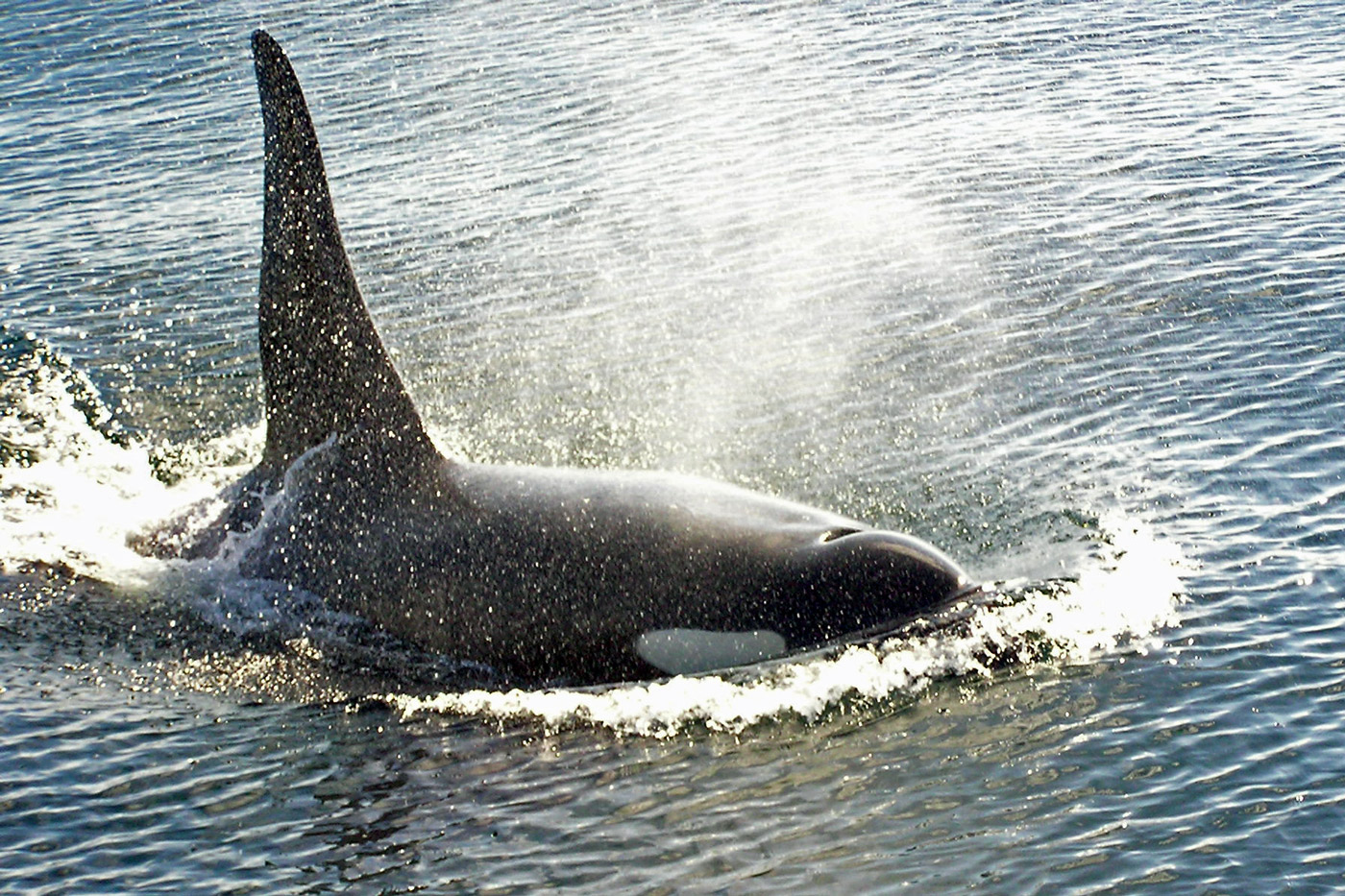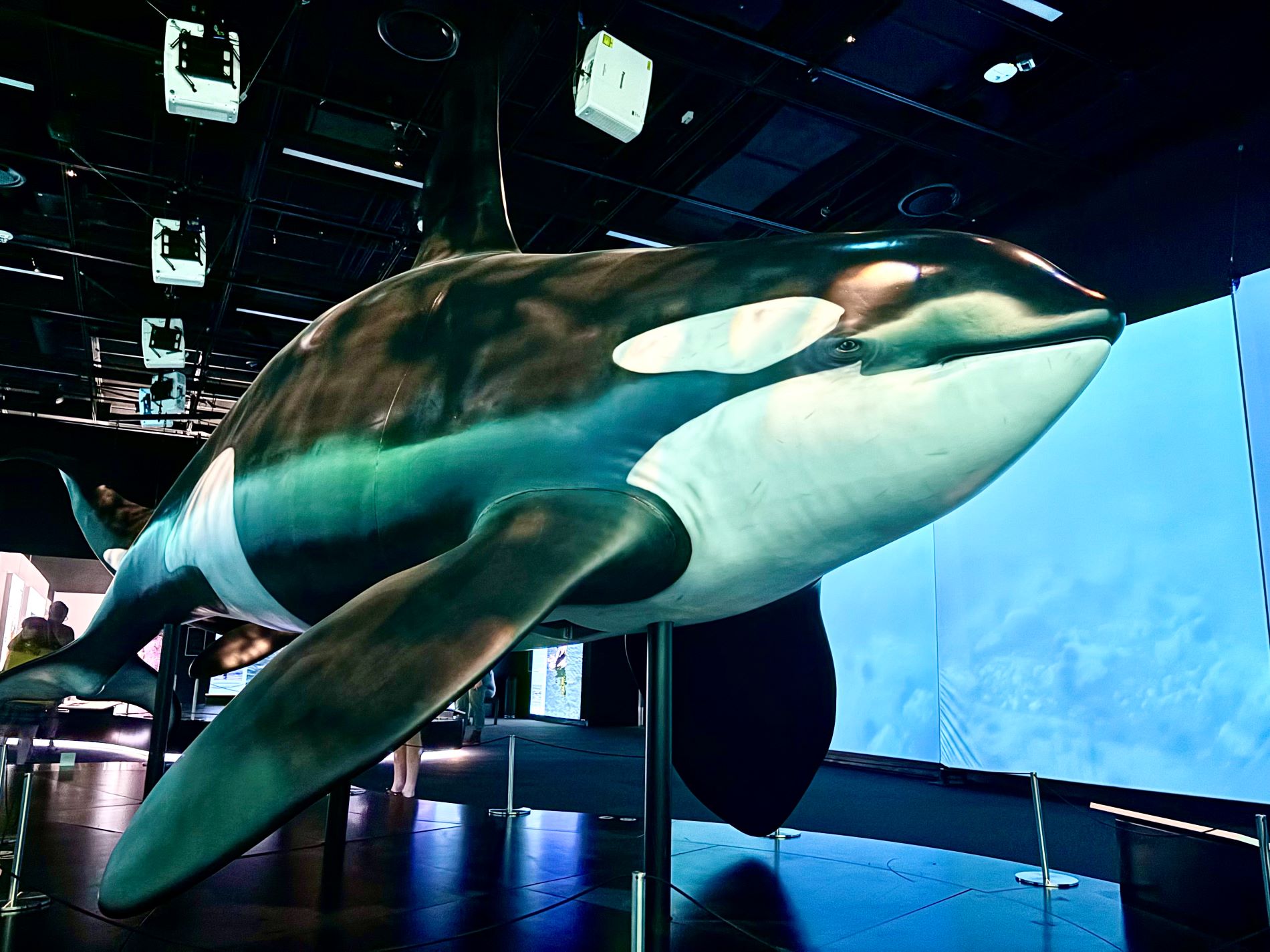
Since 2020, a group of orcas have been observed ramming into boat rudders off the coast of Spain and Portugal. This strange behavior has piqued the interest of scientists and marine biologists, leaving many wondering what could be causing these unusual interactions.
In February 2024, an international workshop was held in Madrid to address the recent incidents of Iberian killer whales ramming and damaging boat rudders. Researchers suggest that orcas might be playing too aggressively with boats. According to a New Atlas article published in May of 2024, scientists suggested that increased availability of bluefin tuna, the whales’ main food source, has given these naturally curious creatures more “free time” to focus on boat rudders as toys. The behavior is predominantly seen in juvenile males, the most exploratory members of the pods.
"Much like humans, orcas are incredibly social animals, and they learn behaviors from each other—both good and bad,” says Experience Developer Julie Peterson. “Hopefully the orcas involved in most of these incidents will grow out of their rowdy teenage years soon!”
The International Whaling Commission report published after the workshop provides suggestions for mitigating harm caused by these interactions. They recommend making boat rudders less appealing to the whales by adding buoys or fenders to distract them. They caution against using flares or noise-making devices to deter the whales, as this could injure them and possibly exacerbate the behavior.

"Orcas: Our Shared Future," now at the Denver Museum of Nature & Science, includes life-size replicas of an orca family. Entering the room, you can hear and see what life may be like for orcas under the sea. (Photo/ Sarah Poetzschke)
Before diving deeper into this story, we invite guests to learn more about these magnificent creatures here at the Denver Museum of Nature & Science in our temporary exhibition, “Orcas: Our Shared Future.”
This limited-time exhibition offers an exciting opportunity to learn more about these incredible apex predators and their behaviors. Guests can trace the evolution of our beliefs about orcas, from fear to admiration and awe, as we discover their stunning intelligence and complex social structures. Guests will be able to explore a life-sized replica of an orca family and listen to their soothing harmonies in an immersive underwater environment, deepen their appreciation for the art of the Indigenous peoples of North America’s Northwest Coast and uncover stories that reveal a profound respect for orcas, highlighting the deep connection between humans and these powerful beings.
Here are data points from the International Whaling Commission report:
- Location: 93% of interactions happened on the Iberian Peninsula's Atlantic coast, with some in France to Morocco.
- Duration: Interactions lasted an average of 25 minutes, with some up to two hours.
- Timing: Most interactions (48%) occurred from June to September, and 78% happened during the day (10 a.m.–8 p.m.).
- Boat Types: Medium-length sailboats were most frequently approached, 80%, especially those with spade rudders, although orcas target all types of rudders, including metal ones.
- Whales: 15 individual whales have been identified as participating in these incidents, usually interacting with vessels in smaller groups.
- Speed: Boats were usually traveling at an average of six knots before interactions.
- Damage: Most damage was to sailboats, while rigid-hulled inflatable boats and motorboats were typically undamaged. Out of hundreds of documented interactions since 2021, just six vessels have been sunk, and there were no resulting fatalities.
- Conditions: Weather and water conditions do not significantly affect interaction likelihood, though the report recommends avoiding known orca gathering spots to avoid interactions altogether.
Although the report highlights several key findings about orca interactions with boats off the coast of Spain and Portugal, interactions between orcas and marine vessels have been recorded all over the world. Factors such as changes in human activities, boat routes, and fishing practices might influence orca behavior. Identifying these factors is crucial for developing effective mitigation measures to reduce these interactions, which are already in the works by the International Whaling Commission. Scientists will continue working hard to understand the complexity of orca behaviors.